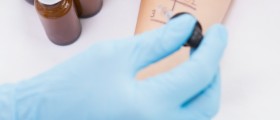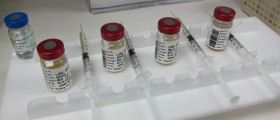
Drug allergies generally occur as a result of the body’s immune system reacting adversely to the presence of a drug or medication. For the most part, these allergies are mild or moderate, but, in some cases, the allergies can progress and become more severe. Many allergies are self resolving, but it is often necessary to undergo treatment in order to beat the allergy. Once an allergy to a particular drug has occurred, it is likely that one will be allergic to that particular drug for the rest of your life. However, it is important to remember that adverse reactions to drugs are not always the result of drug allergies. Some reactions that occur after drug use are not allergic in their makeup.
Drug allergies
Generally, the symptoms of drug allergy will take a relatively predictable form. Often, drug allergies result in hives, welts, rashes, blisters, or even eczema. One might also experience problems such as wheezing, coughing, breathing difficulties, or a runny nose. In some cases, one might also suffer from a serious skin condition that results in the blistering and peeling of the skin. Known as toxic epidermal necrolysis, this can be a fatal condition if not adequately addressed. In severe cases, a reaction known as anaphylaxis might occur. This is a potentially fatal reaction, and will require emergency action.
Drug allergies treatment
There are a wide variety of medications that can lead to the onset of an allergic reaction. However, the majority of drug allergy cases are related to medications such as penicillin, barbiturates, vaccines, insulin, sulfa medicines, anticonvulsants, and hyperthyroidism medications. If you suffer from an allergy to one particular drug, it is possible that you might also be vulnerable to medications that take a similar form.
Diagnosis plays an important role in the proper addressing of drug allergies. A doctor will require some information, particularly with regard to your past history. It might be necessary to undergo a physical exam, a skin test, or a drug provocation test. Blood testing might also be necessary. If a severe reaction has occurred, the primary treatment of the condition might take place in an emergency room. Epinephrine shots might be used to assist breathing, while antihistamines and steroid medicines might also be used. Mild allergic reactions will generally only require the usage of over the counter antihistamines. It is also important to avoid using the offending medication, as this is one of the most effective ways to conquer a drug allergy.

















Your thoughts on this
Loading...